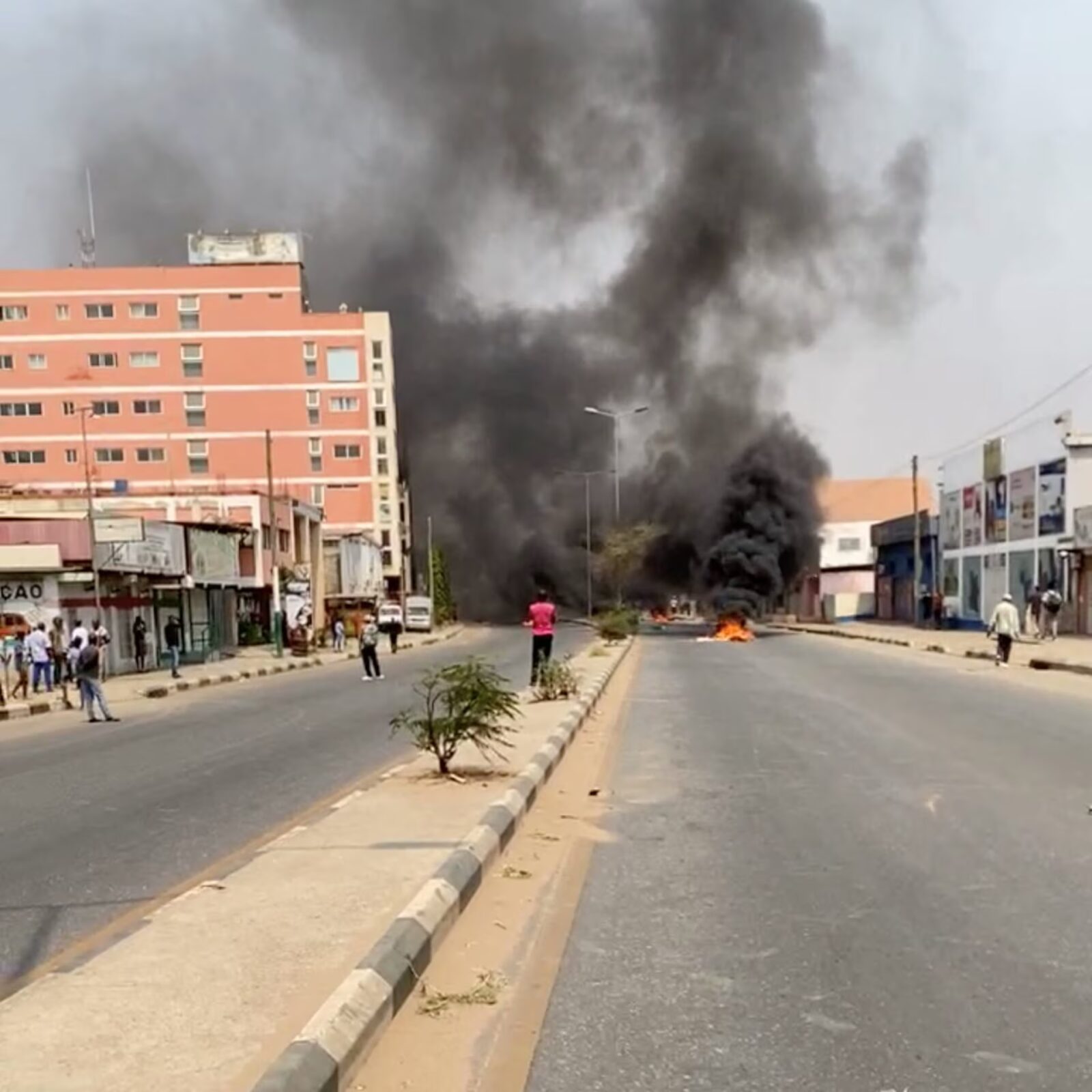Fear still lingers on the streets of Luanda, Angola’s capital, months after violent protests erupted in July over a sudden hike in fuel prices, leaving at least 30 people dead and thousands arrested. What began as a peaceful call by taxi drivers to demonstrate against rising fuel costs quickly spiraled into three days of chaos that engulfed Luanda and spread to other provinces, making it one of the most significant episodes of unrest since the end of Angola’s civil war in 2002. Roads were barricaded with burning tyres, shops were looted, and deadly clashes broke out between demonstrators and heavily armed police forces.
As the oil-rich nation prepares to celebrate 50 years of independence from Portugal on November 11, the July protests have exposed the deep social fractures and persistent inequality facing ordinary Angolans. Despite the country’s vast natural resources and gleaming skyscrapers funded by oil wealth, millions of citizens continue to struggle with poverty, unemployment, and the soaring cost of living. In the poorer neighborhoods of Luanda where the demonstrations were strongest, residents remain reluctant to speak openly about the events, fearing reprisals in a climate where thousands were detained during and after the unrest.
A 24-year-old street vendor in Luanda, who left school before completing his education and now sells soft drinks to support his family, said joining the protests was his way of showing that “we have a voice.” For him, and for many of Angola’s young population, the protests were not just about fuel prices but about inequality in a country that is “rich for some, but miserable for so many.” Youth unemployment remains one of the country’s most pressing challenges, with official statistics showing that 54% of 15-to-24-year-olds are jobless. Out of 18 million young people of working age, only three million are formally employed, leaving the majority to survive in the informal sector.
Sociologist Gilson Lázaro described the unrest as inevitable, pointing out that the protesters were largely “the dispossessed,” young people with no opportunities who took to the streets because they felt they had nothing left to lose. He argued that Angola is facing a deep political legitimacy crisis rooted in decades of flawed governance since the civil war ended in 2002. The ruling Popular Movement for the Liberation of Angola (MPLA), in power for the entire 50 years since independence, has been accused of ignoring systemic poverty while enriching political elites.
President João Lourenço, who succeeded José Eduardo dos Santos in 2017 after his 36-year rule, initially raised hopes of reform by promising to tackle corruption, diversify the economy, and create jobs. However, eight years later, critics say he has failed to deliver. Inflation remains high at around 18%, the cost-of-living crisis has worsened, and according to a 2024 Afrobarometer survey, 63% of Angolans believe the economic situation has deteriorated compared to the previous year. While Angola’s economy grew in 2022 and 2023 after years of recession, the World Bank estimates that more than one-third of Angolans still live on less than $2.15 a day. The Bank also noted that while the economy is expanding, it is not keeping pace with population growth, meaning the average citizen is getting poorer.
For many young people, the July protests were a desperate attempt to draw attention to the government’s failure to address their suffering. Student Lea Komba, aged 20, described the unrest as “terrifying but expected,” emphasizing that protests remain the only way to express dissatisfaction in a country where youth are consistently ignored. She believes the government’s celebratory narrative of “one people, one nation” does not reflect the reality of deep inequality between the elite and marginalized communities condemned to extreme poverty. “Young people think with their stomachs, because hunger leaves them with nothing to lose,” she said.
The government, however, has dismissed the protests as acts of sabotage. In a national address on August 1, President Lourenço condemned the demonstrators as “irresponsible citizens manipulated by anti-patriotic organizations through social media,” accusing them of causing destruction, mourning, and economic losses. Yet critics argue that Angola’s dependence on oil revenue has left the country vulnerable, with little effort made to channel resource wealth into education, job creation, or infrastructure for the poor. Economist Francisco Paulo said Angola should emulate models like Norway, using oil revenue to diversify the economy and build human capital, but instead, much of the wealth has been wasted on “superficial expenses with no added value.”
As Angola prepares grand celebrations to mark its 50th independence anniversary, including concerts, medal ceremonies, and even a football event featuring Lionel Messi, disillusionment among the youth remains high. Many believe the government is focusing on optics rather than tackling the root causes of discontent. Analysts warn that the July protests may not be the last, with more unrest likely before the 2027 elections if poverty, inequality, and unemployment remain unaddressed. For now, the silence in Luanda’s poor neighborhoods hides simmering frustrations in a country where political awareness is growing, and where young people are increasingly willing to risk everything to demand change.













Leave a comment